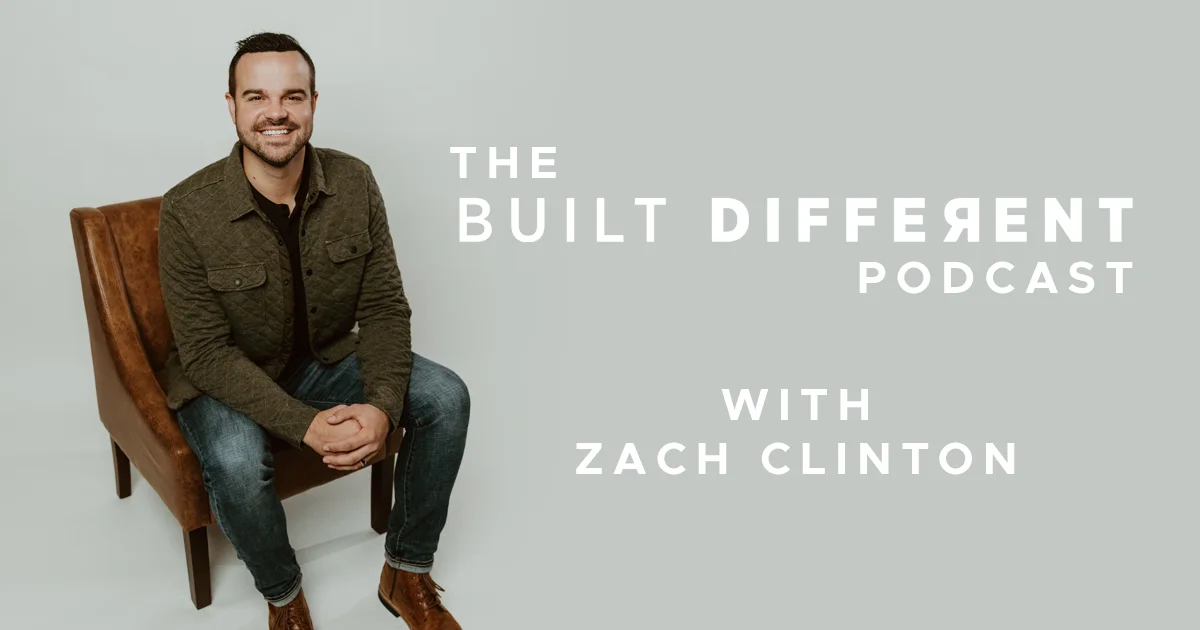
The Prerequisite to the Christian Life
By Michael A. Milton, PhD
John 21:15 (NKJV): So when they had eaten breakfast, Jesus said to Simon Peter, “Simon, son of Jonah, do you love Me more than these?” He said to Him, “Yes, Lord; You know that I love You.”
It is possible to come to Christianity with the idea that we bring something to God that God needs. This line of thinking should be articulated more clearly. However, we might suppose, for example, that since we have a sonorous voice, Mensa-grade IQ, or, say, the gifts and graces of a phenomenal cook, we can “help the Lord out.” Or, perhaps, we think, “That church could use me about now.”
The case may be ostensibly so. First Church could use a good cook on Wednesday nights (please don’t tell Mrs. Bland). Or, no one can deny that Mount Calvary could use a strong tenor in the choir (naturally, no offense to Mr. Bellows). Yes, it might look like GOD could use a gifted guy like you. But such thinking is not only biblically and theologically erroneous, but it is also dangerous. Just as God did not choose Abraham because of anything good in Abraham (Deuteronomy 7:7) but rather because of God’s love from the foundation of the earth. So, also, God chose you because of His glory and love. You and I cannot earn God’s love. We must only repent of our sins, believe in the resurrected and reigning Lord Jesus Christ, and follow him. God doesn’t need anything we have because, of course, He gave us all that we possess.
Believe it or not, the New Testament has several glaring examples of muddle-headed thinking on this subject. Lest you believe that such narcissistic ideation as boasting before God is absent from those select disciples who were with Jesus personally, pay a visit to the story of Peter. Simon Peter had some rough edges that the Lord, the master carpenter, would file down. There were plenty of splinters on this Galilean fisherman. Not only did Peter boast, "Others may fall away, but I will never" (see Mark 14:29) he went on to deny Jesus. He not only denied Jesus Christ, but he also betrayed the Lord at the very time of Jesus's passion and crucifixion. To paraphrase T.S. Eliot (1888-1965), the Apostle Peter came in like a blustering norther but went out “Not with a Bang but a Whimper” (T. S. Eliot, The Hollow Men, 1925). Yet, as the reader turns the pages of Scripture to 1, 2 Peter, this sinfully proud, spiritual patsy becomes a veritable paragon of pastoral power in humility. What happened? The answer is John 21:15. This verse begins a dialogue between Jesus and Peter that would change history—Peter’s and ours.
I have called this devotional “The Prerequisite to the Christian Life” because Jesus demonstrates that Peter needed to understand a fundamental truth about his relationship with Jesus Christ before further service. What is this prerequisite to service for Peter? What is the prerequisite for the Christian life for us? There are two.
The first prerequisite to the Christian life is a personal relationship with Jesus Christ.
Now, that may sound simplistic. It may even appear redundant. Doesn't Peter already have a personal relationship with Jesus? However, notice that Jesus asked Peter, "Do you love me more than these? Peter’s love for Jesus was in reference to others. Again, I cite the passage, "others may betray you." Whom was he talking about? “Others will fall away. I won’t.” Peter's love of Jesus was demonstrated in performance, so you and I must come to see that we come to Jesus “just as I am without one plea.” Our relationship with Jesus Christ is not based on any merit in ourselves. My relationship with Jesus is not about anyone or anything. My relationship with Jesus Christ is eternally tethered to His love demonstrated on the cross. As Dietrich Bonhoeffer reminds us, "We must love God for God's own sake."
The second prerequisite to the Christian life is grace that overflows in acts of gratitude.
Jesus told Peter, "Feed my sheep” (John 21:17). A love grounded in grace responds in gratitude. We can only feed His sheep by being filled with His life. Peter’s “come to Jesus” passage is an astonishing dialogue. The Lord separated Peter’s love from a few to share Jesus’ life with many. The Apostle Peter was on the journey to understand God's grace. It would be rough sailing for the fishermen from Galilee. However, God's grace and love were greater than Peter's resistance. And eventually, we witness the remarkably humble pastor who was eventually crucified for the sake of Christ's love and service to others.
Intersecting Faith and Life:
We have learned at least two prerequisites for the Christian life: We bring nothing to God. We must come to Christ broken before His cross. We serve no one well until we are ministering out of the fullness of Christ in us.
You may feel as though you have failed God and others. The truth is, we have all been there. We have all sinned and fallen short of the glory of God. But our Lord Jesus remains on the shoreline, a welcoming figure, the most compelling person in human history. He invites you to dive in as you are. Bring your regrets. Bring your shame. He has already assumed all the infection of a sin-sickened world. And He rose with healing for all who come in need. How does the hymn go” “I surrender all. I surrender all. All to Jesus, I surrender. I surrender all.”
In the name of the Father and the Son and the Holy Spirit. Amen.
Further Reading:
- The marvelous meaning of feed my sheep by Mrs. Amanda Idleman.
- Matthew Henry’s Commentary on the Whole Bible, “John 21.”
- Sounding the Depths: When Jesus Prays for His People by Dr. Michael A. Milton.
Photo credit: Unsplash/JohnyVino
 Michael A. Milton (PhD, Wales) is a long-time Presbyterian minister (PCA) and a regular contributor to Salem Web Network. In addition to founding three churches, and the call as Senior Pastor of First Presbyterian Church, Chattanooga, Dr. Milton is a retired Army Chaplain (Colonel). He is the recipient of the Legion of Merit. Milton has also served as chancellor and president of seminaries and is the author of more than thirty books. He has composed and performed original music for five albums. He and his wife, Mae, reside in Western North Carolina. His most recent book is a second edition release: Hit by Friendly Fire: What to do when Another Believer Hurts You (Resource Publications, 2022). To learn more visit and subscribe: https://michaelmilton.org/about/.
Michael A. Milton (PhD, Wales) is a long-time Presbyterian minister (PCA) and a regular contributor to Salem Web Network. In addition to founding three churches, and the call as Senior Pastor of First Presbyterian Church, Chattanooga, Dr. Milton is a retired Army Chaplain (Colonel). He is the recipient of the Legion of Merit. Milton has also served as chancellor and president of seminaries and is the author of more than thirty books. He has composed and performed original music for five albums. He and his wife, Mae, reside in Western North Carolina. His most recent book is a second edition release: Hit by Friendly Fire: What to do when Another Believer Hurts You (Resource Publications, 2022). To learn more visit and subscribe: https://michaelmilton.org/about/.
Check out fantastic resources on Faith, Family, and Fun at Crosswalk.com!
Related Resource: How Habit Stacking Will Help You Discipline Your Mind, Body, & Spirit
The process of success is not hidden. It is on display for anyone to see. However, it is a daily grind that requires a great deal of work that is tedious and often uncomfortable. Successful people simply do the work. They embrace the grind and everything that comes with it. Ultimately, successful people understand this truth - Hope doesn’t produce change. Habits do! Everyone has the desire, but many lack the necessary discipline! That’s why today on The Built Different Podcast we have a very special guest who understands the importance of discipline and habits at a very high level. Don’t just focus on changing the thoughts in your head and the habits in your life, but also allow God to transform your heart from the inside out. If you like what you hear, be sure to subscribe to The Built Different Podcast on Apple, Spotify or YouTube so you never miss an episode!

